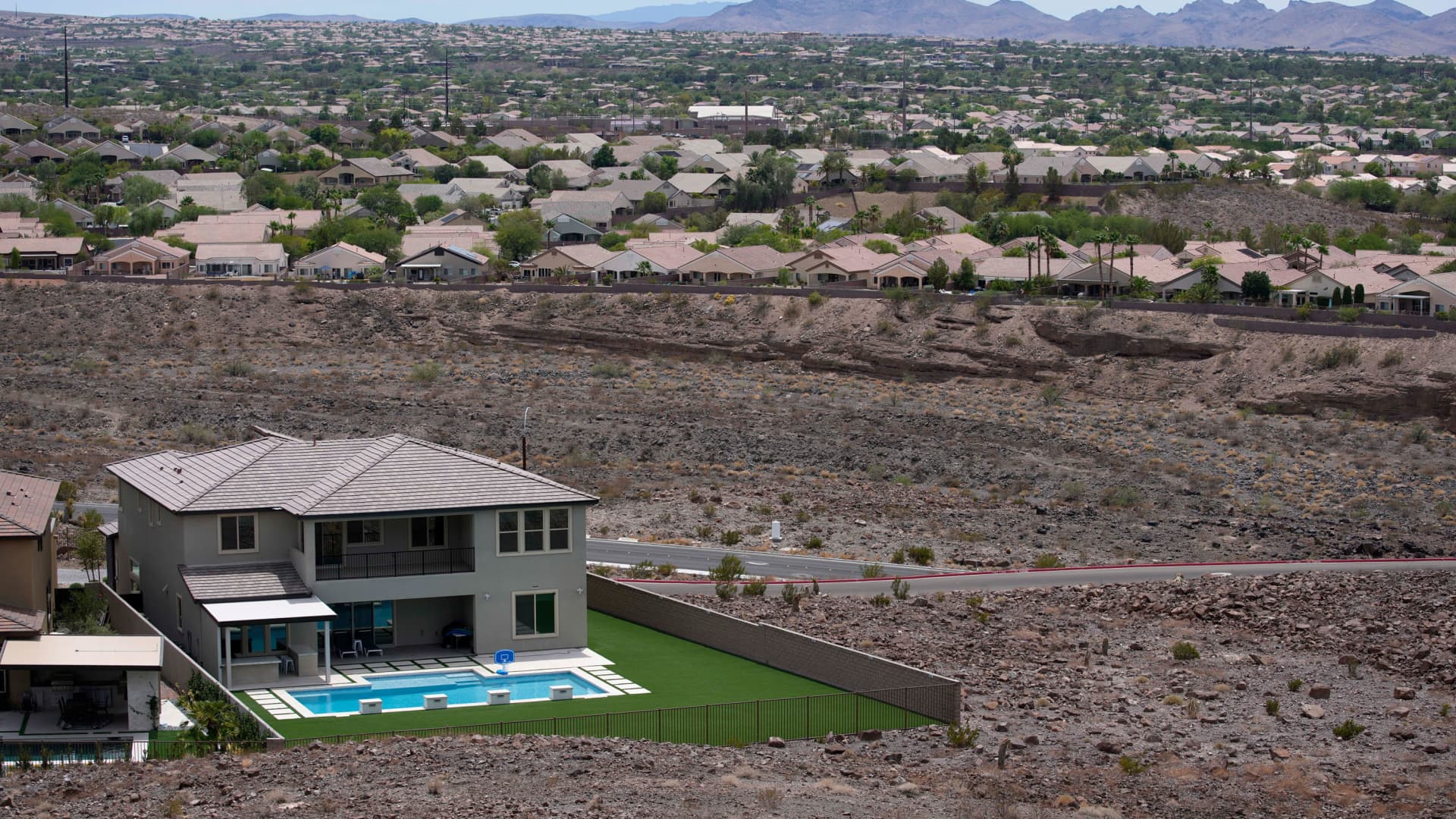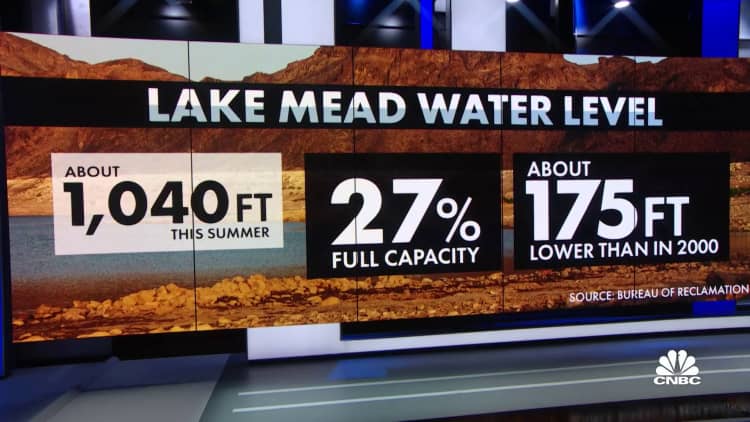
A home with a swimming pool abuts the desert on the edge of the Las Vegas valley, Wednesday, July 20, 2022, in Henderson, Nev.
John Locher | AP
Nevada lawmakers are considering legislation that will give water managers the authority to restrict the amount of water available for residential use, a proposal that comes as worsening drought conditions and climate change have depleted the Colorado River reservoirs.
The proposed bill would make Nevada the first state to allow a water agency, the Southern Nevada Water Authority, to shut off water use for single-family residences that use more than half an acre-foot of water, roughly 163,000 gallons, each year.
Representatives from the water agency, which serves the Las Vegas metropolitan area, told state lawmakers this week that the measure would only impact the top 20% of Las Vegas water users. The average customer in the Las Vegas Valley uses 130,000 gallons per year.
The water agency would not impose residential restrictions right away but rather if drought conditions and water shortages at the Colorado River continued to get worse. The agency has not yet decided how it would enforce the proposed limits too.
“It does address these top 20% of customers who are using more water and have not made the changes necessary to protect our communities’ water supplies,” Southern Nevada Water Authority public service director Andy Bellanger told the Assembly Natural Resource Committee on Monday.
While the Colorado River has long been over-allocated, climate change has worsened drought conditions in the region while levels at the country’s two largest reservoirs, Lake Mead and Lake Powell, have reached record lows.
Las Vegas depends on the Colorado River for 90% of its water supply. Nevada has already lost about 8% of its Colorado River supply from mandatory cuts by the federal government.
Nevada has imposed some of the strictest conservation policies in the region, including laws that ban decorative grass and limit the size of new swimming pools in the Las Vegas area.
The seven states that draw from the Colorado River have so far failed to strike a deal on voluntarily cutting water use. Six of the states have jointly submitted a proposal outlining ways to reduce water use while California, the largest user of the Colorado River, has released a separate plan.
The failure to reach an agreement could prompt more federal government cuts. The Biden administration has urged the Colorado River Basin states to save between 2 million and 4 million acre-feet of water, or up to a third of the river’s average flow.

